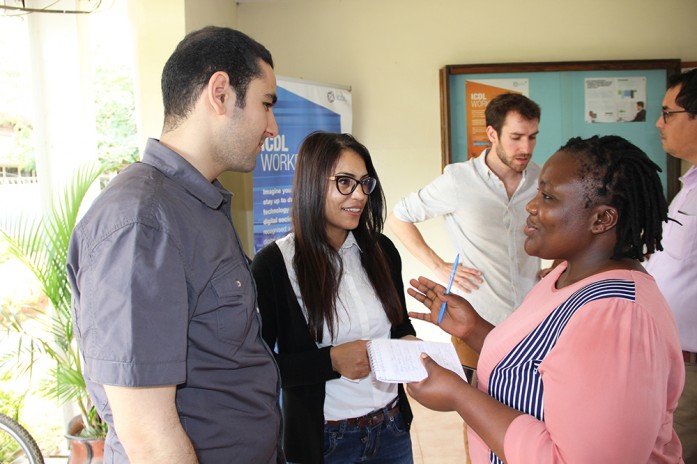
It’s #worldwaterday and RCMRD is excited to be joining participants at the Regional Training Workshop on Geospatial Technologies for Agricultural Statistics & Monitoring at RCMRD.
Deus Niringiye from Uganda says we need to change our ways and conserve water. Many times when it rains, we do not harvest the rain water. “The harvesting of rainwater simply involves the collection of water from surfaces on which rain falls, and subsequently storing this water for later use. However we hardly do that and when the rains are over, we experience dry spells,” he advices #Harvesting #rainwater is a good practice to follow.
Getachew Gemtesa Tirunen from Ethiopia notes, “Every time you go to the toilet it uses about 9 to 12 litres of water. So if you count the times that you use the toilet and the times that the rest of your family is using the toilet, you will see that you are wasting a lot of clean drinking water. Why not flush the toilet with used water?” #Sanitation
From Niger, Bako Mamane recommends recycling of water even in Agriculture. He asks people to use #Drip irrigation methods instead of flood irrigation. “Drip irrigation, also known as micro-irrigation is a method that runs water through plastic tubes that release the flow through small holes directly to crop roots or stems.” He says the precise application allows drip-irrigated crops to be watered more frequently than with traditional sprinkler methods. Yet farmers waste fewer resources because most water is absorbed through transpiration. “Many governments have encouraged drip irrigation as a water-conserving technology that can boost crop yields, but few have applied the technology.” #Irrigation
#Industries. “Industry is a huge source of water pollution, it produces pollutants that are extremely harmful to people and the environment. Many industrial facilities use freshwater to carry away waste from the plant and into rivers, lakes and oceans,” Evans Zoungrana from Burkina Faso orates.
He adds that Industrial pollution takes on many faces. “It contaminates many sources of drinking water, releases unwanted toxins into the air and reduces the quality of soil all over the world. Major environmental disasters have been caused due to industrial mishaps, which have yet to be brought under control.”
From Tunisia, Dalel Buzaida and Prof. Moez Labiadh say Water resources in Tunisia are characterized by scarcity and a pronounced irregularity. “By adopting an integrated strategy for the use of water based on scientific and technical studies, Tunisia has been able to develop a complex and diverse water infrastructure allowing the country to mobilize and exploit available water resources.” They add, “At the same time, Tunisia has put in place systems and legislation to assure access to drinking water for the majority of the urban and rural population and to provide supplies for agricultural irrigation, as well as the industrial and tourism sectors.”
As for RCMRD’s Lillian Njeri, “There is also a lot of wasting of water when people doing the dishes while the water is running or when you rinse your mouth after brushing your teeth or when you take a shower. Even when watering the plants in dry seasons. For all these problems are solutions, but who people do not want to work on these solutions.”
On this World Water Day, RCMRD encourages people to learn more about how rethinking sanitation systems and water usage habits leads not only to healthier communities, but how it would free-up clean water to be used where it is needed most – for families around the world to drink, cook, and bathe safely.
This #worldwaterday pledge to report all water leaks immediately. Every drop we waste could be a matter of life and death for someone in the near future. Save Water, Save our Future!! #WorldWaterDay














